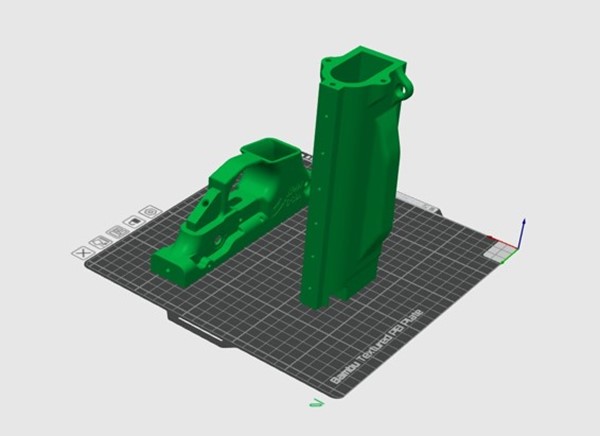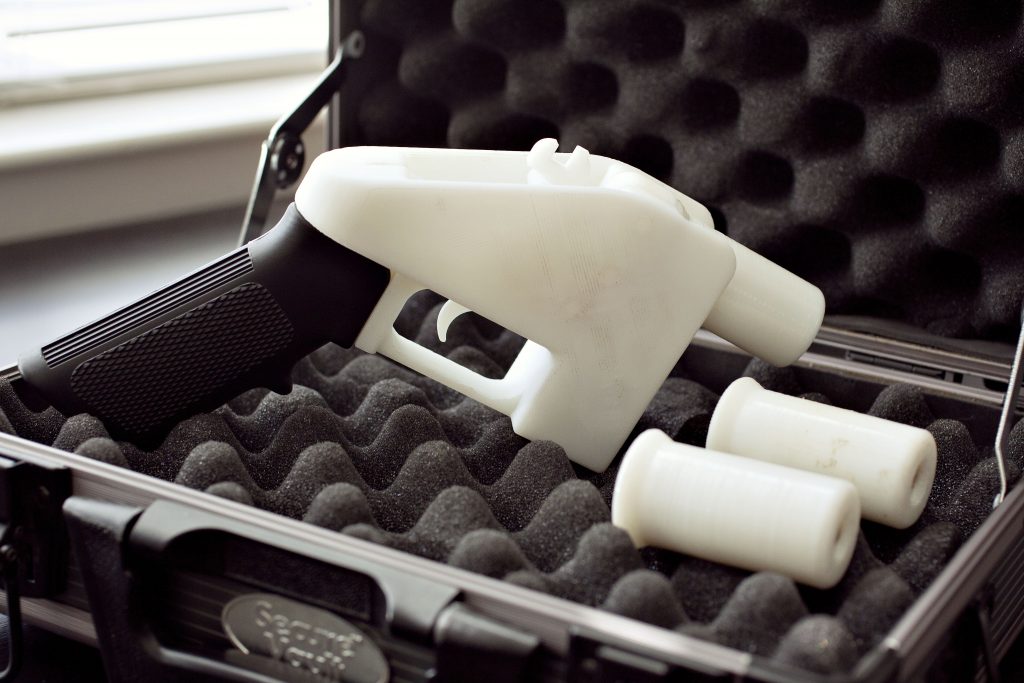Introduction:
As 3D printing technology advances rapidly, the barriers to manufacturing firearms have significantly lowered, raising global concerns. Governments and legislative bodies around the world face unprecedented challenges and are under increasing pressure to take action against this emerging threat.
On May 27, 2025, it was reported that Manhattan District Attorney Alvin L. Bragg, Jr., together with New York State Senator Brad Hoylman-Sigal and Assemblymember Linda Rosenthal, introduced a new bill (S227A/A1777A) aimed at curbing the proliferation of 3D-printed guns and automatic firing devices—small, inexpensive tools capable of converting semi-automatic firearms into fully automatic weapons.
Under current New York State law, possession of automatic rifle components is classified as a Class A misdemeanor, punishable by up to one year in jail. Manufacturing these parts constitutes a Class E felony—the least severe felony class—carrying a maximum sentence of four years. However, it is still legal to share the digital files used to 3D print these parts. The proposed legislation aims to close this loophole by making the intentional distribution of such files a Class A misdemeanor.
“Reducing gun violence and addressing the spread of 3D printed and ghost guns has long been a top priority for my office,” said District Attorney Bragg.
“Fully automatic weapons are inherently dangerous and exacerbate gun violence. This legislation represents a comprehensive approach to hold individuals accountable for developing and distributing illegal firearms. I urge lawmakers to consider this bill seriously before the legislative session ends in June and thank Senator Hoylman-Sigal and Assemblymember Rosenthal for their continued support and leadership.”

△ Image: Gun component blueprints. Source: New York State Senate
3D-Printed Guns and Automatic Conversion Devices
Automatic rifle parts refer to small and inexpensive devices that convert semi-automatic weapons into fully automatic firearms. They can be made of plastic or metal, often disguised as harmless objects such as toys, and can be manufactured at home for as little as $5. The digital files used to create them are typically distributed via encrypted platforms, many of which are exploited by extremist groups.
This bill builds on a 2023 proposal, which not only sought to criminalize the production of 3D-printed guns and their components, but also the dissemination of digital blueprints used to manufacture them. These provisions have been incorporated into the updated legislation.
The proposal aligns with the Manhattan DA’s broader, multi-pronged strategy to combat the growing prevalence of untraceable homemade firearms. In June 2023, DA Bragg, Senator Hoylman-Sigal, and Assemblymember Rosenthal introduced legislation to make the manufacture of 3D-printed firearms and components a Class D felony, and the distribution of digital blueprints a Class A misdemeanor. The new version of the bill retains this language.
The revised legislation reflects ongoing efforts by DA Bragg and his office to stem the spread of 3D-printed guns and their components. In March this year, Bragg sent letters to 3D printing companies urging them to implement stronger safeguards to prevent weapon production. His office is also in discussions with platforms that host blueprint files to address the issue at its source.

△ Image: Plastic “Liberator” pistol. Source: Defense Distributed
Statement from Assemblymember Linda B. Rosenthal
Assemblymember Linda B. Rosenthal (D/WF–Manhattan), Chair of the Assembly Housing Committee, stated:
“No one should be allowed to manufacture weapons of war with a 3D printer. As the federal government continues to roll back crucial gun control measures, it is imperative for New York State to do everything in its power to protect communities from the spread of illegal firearms. The bill I introduced with Senator Hoylman-Sigal will ban the creation of ghost guns and their components, empowering law enforcement to seize and remove these deadly weapons from our streets.”
Since launching the “Ghost Gun” initiative in 2020, the Manhattan DA’s office has prosecuted several high-profile cases, seizing more than 92 illegal firearms, 134 ghost gun parts, 443 high-capacity magazines, 49 silencers, and other rapid-fire accessories.
Government Actions and Expert Warnings on 3D Printed Guns
As 3D-printed firearms become more common, experts have raised alarms about their growing appeal among far-right extremist groups. Dr. Yannick Veilleux-Lepage, an assistant professor at the Royal Military College of Canada and an expert on terrorism and political violence, explained in an interview how 3D-printed weapons are becoming increasingly attractive to extremist organizations.
His research, published in West Point’s Combating Terrorism Center Sentinel, documented 42 known cases of far-right individuals producing or attempting to acquire 3D-printed guns. Dr. Veilleux-Lepage emphasized that these weapons hold symbolic value for extremists, representing both a rejection of government regulation and a declaration of self-reliance.
While the broader 3D-printed gun community includes people from diverse ideological backgrounds, Veilleux-Lepage noted it is “adjacent to the far-right online ecosystem,” making it particularly vulnerable to extremist influence. Platforms like YouTube, Reddit, and encrypted messaging apps facilitate the sharing of blueprints and tutorials, creating a space where DIY gun culture often intersects with extremist ideologies.
In response to these risks, some companies and governments have taken preventative steps. French 3D printer manufacturer Dagoma partnered with international ad agency TBWA\Paris to combat blueprint access by distributing fake, non-functional gun files designed to thwart attempts at downloading usable weapon models.
At the platform level, Facebook has banned content sharing instructions for 3D-printed guns, citing violations of its community standards. However, organizations such as the Firearms Policy Coalition have pushed back, arguing that such restrictions infringe on free speech.